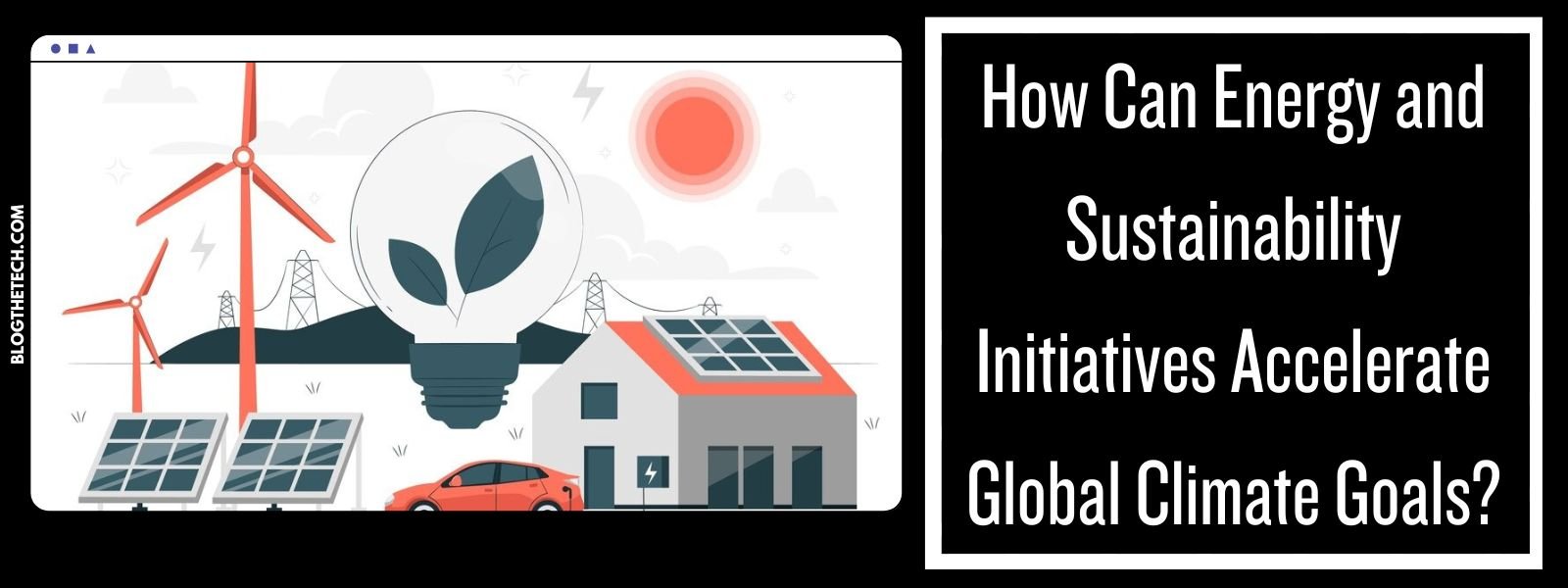The urgency to address climate change has reached unprecedented levels. Governments, corporations, and individuals worldwide are working to mitigate the adverse effects of global warming. Among the many approaches, energy and sustainability initiatives stand out as essential tools in combating climate change. These initiatives not only address environmental challenges but also promote economic growth and social well-being.
This blog explores the pivotal role of energy and sustainability efforts and how they contribute to a healthier, greener planet.
The Role of Renewable Energy in Achieving Climate Targets
Renewable energy sources, such as solar, wind, and hydropower, are critical to reducing greenhouse gas emissions. These clean energy options offer an environmentally friendly alternative to fossil fuels, which are major contributors to global warming.
Shifting to renewable energy reduces dependence on non-renewable resources, lowering the carbon footprint associated with power generation. For instance, solar and wind power projects have seen exponential growth in recent years, demonstrating their feasibility and scalability. Additionally, renewable energy provides a sustainable supply of power, ensuring energy security while contributing to long-term climate objectives.
Enhancing Energy Efficiency for a Sustainable Future
Improving energy efficiency is another crucial pillar of energy and sustainability initiatives. By optimising how energy is used, businesses and households can reduce consumption without compromising performance.
From upgrading to energy-efficient appliances to retrofitting buildings with better insulation, there are numerous ways to enhance energy efficiency. Industries are increasingly adopting innovative technologies, such as smart systems and automation, to monitor and optimise energy use. These measures not only cut costs but also significantly lower greenhouse gas emissions, making them a win-win for both the economy and the environment.
Sustainable Practices in Industries and Businesses
Industries and businesses have a significant role in driving sustainability. By integrating sustainable practices into their operations, they can contribute to global climate goals while fostering economic growth.
For example, adopting circular economy principles—where resources are reused and recycled—reduces waste and conserves energy. Similarly, transitioning to low-carbon supply chains ensures that every step in production minimises its environmental impact. Companies are also setting science-based targets to align their operations with international climate agreements, further reinforcing their commitment to sustainability.
Community Engagement in Sustainability Efforts
Communities play a vital role in energy and sustainability initiatives. Grassroots movements and local programs encourage individuals to adopt sustainable habits and promote awareness of climate issues.
Educational campaigns on energy conservation, recycling, and renewable energy adoption empower communities to take actionable steps toward a greener future. Moreover, community-driven renewable energy projects, such as solar cooperatives, allow local populations to participate in clean energy transitions directly. This collective effort accelerates the broader adoption of sustainable practices and strengthens the fight against climate change.
The Global Impact of Energy and Sustainability Initiatives
Energy and sustainability efforts extend their influence far beyond local and national levels. By fostering international collaboration, these initiatives help align global strategies to combat climate change.
For instance, renewable energy investments and technology transfers between countries enable developing nations to access clean energy solutions. This global cooperation ensures that all nations, regardless of economic status, can contribute to climate goals. Furthermore, these initiatives promote green jobs and innovation, creating economic opportunities while addressing environmental challenges.
Partnering for a Sustainable Tomorrow
The transition to a sustainable future requires collective action from governments, industries, and individuals. Energy and sustainability initiatives offer a clear path toward achieving global climate goals by promoting renewable energy, improving efficiency, and fostering community engagement.
Partnering with reputable energy brands can amplify these efforts. Established energy companies often have access to advanced technologies and expertise that can optimise sustainability strategies. They can help businesses and communities implement solutions tailored to their unique needs, ensuring maximum impact. By aligning with trusted partners, stakeholders can accelerate progress toward a greener and more resilient world.





